Hyundai Tucson vs Mercedes EQB – Differences & prices compared
Compare performance, boot space, consumption and price in one view.
Find out now: which car is the better choice for you – Hyundai Tucson or Mercedes EQB?
The Hyundai Tucson (SUV) comes with a Diesel MHEV, Petrol MHEV, Petrol, Full Hybrid or Plugin Hybrid engine and Automatic or Manuel transmission. In comparison, the Mercedes EQB (SUV) features a Electric engine with Automatic transmission.
When it comes to boot capacity, the Hyundai Tucson offers 620 L, while the Mercedes EQB provides 495 L – depending on how much space you need. If you’re looking for more power, decide whether the 252 HP of the Hyundai Tucson or the 292 HP of the Mercedes EQB suits your needs better.
In terms of consumption, the values are 1 L per 100 km for the Hyundai Tucson, and 15.20 kWh for the Mercedes EQB.
Price-wise, the Hyundai Tucson starts at 30600 £, while the Mercedes EQB is available from 45900 £. Compare all the details and find out which model fits your lifestyle best!
Hyundai Tucson
The Hyundai Tucson is a standout choice in the compact SUV segment, offering a perfect blend of style, comfort, and practicality. Its modern design is complemented by a spacious interior that provides ample room for passengers and luggage alike. With advanced technology and safety features, the Tucson ensures a smooth and enjoyable driving experience.
details @ hyundai.news
@ hyundai.news
 @ hyundai.news
@ hyundai.news
 @ hyundai.news
@ hyundai.news
 @ hyundai.news
@ hyundai.news
 @ hyundai.news
@ hyundai.news
Mercedes EQB
The Mercedes-Benz EQB is an all-electric compact SUV that seamlessly blends practicality with modern luxury. Its sleek design and spacious interior make it an attractive option for families seeking both style and function. With advanced technology and impressive range capabilities, the EQB is a testament to Mercedes-Benz's commitment to sustainable mobility.
details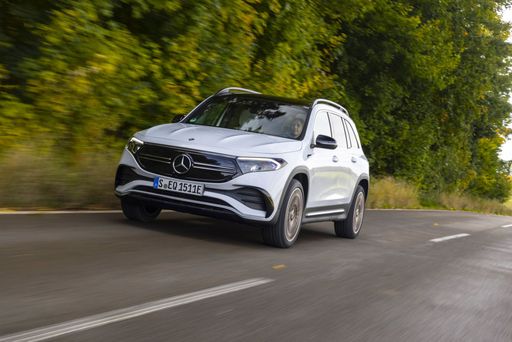 @ group-media.mercedes-benz.com
@ group-media.mercedes-benz.com
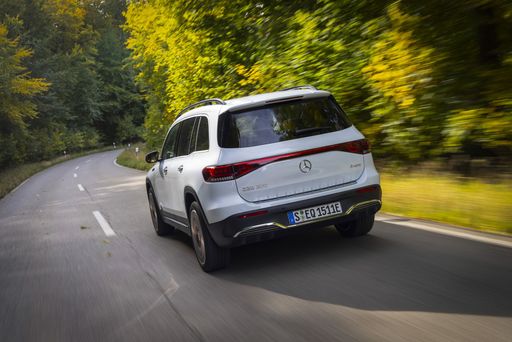 @ group-media.mercedes-benz.com
@ group-media.mercedes-benz.com
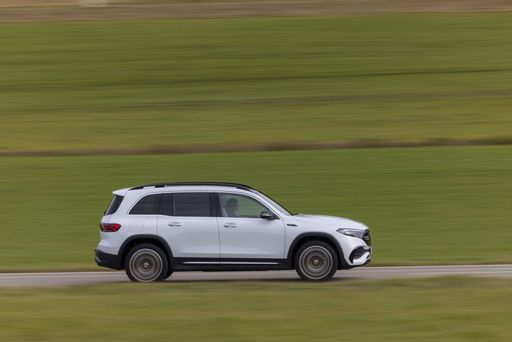 @ group-media.mercedes-benz.com
@ group-media.mercedes-benz.com
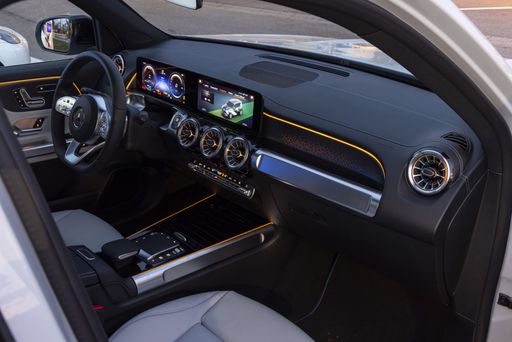 @ group-media.mercedes-benz.com
@ group-media.mercedes-benz.com
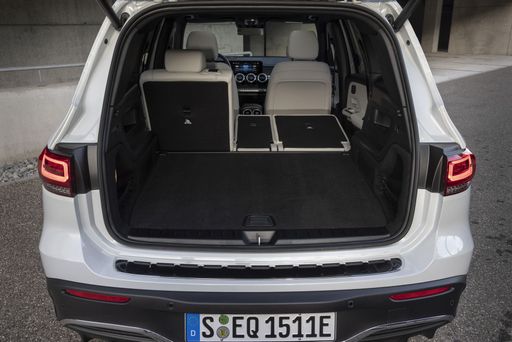 @ group-media.mercedes-benz.com
@ group-media.mercedes-benz.com

|

|
|
|
|
Costs and Consumption |
|
|---|---|
|
Price
30600 - 46300 £
|
Price
45900 - 58900 £
|
|
Consumption L/100km
1 - 6.9 L
|
Consumption L/100km
-
|
|
Consumption kWh/100km
-
|
Consumption kWh/100km
15.2 - 17.2 kWh
|
|
Electric Range
64 - 70 km
|
Electric Range
468 - 535 km
|
|
Battery Capacity
-
|
Battery Capacity
70.50 kWh
|
|
co2
22 - 156 g/km
|
co2
0 g/km
|
|
Fuel tank capacity
42 - 54 L
|
Fuel tank capacity
-
|
Dimensions and Body |
|
|---|---|
|
Body Type
SUV
|
Body Type
SUV
|
|
Seats
5
|
Seats
5
|
|
Doors
5
|
Doors
5
|
|
Curb weight
1520 - 1889 kg
|
Curb weight
2105 - 2170 kg
|
|
Trunk capacity
546 - 620 L
|
Trunk capacity
495 L
|
|
Length
4510 - 4520 mm
|
Length
4684 mm
|
|
Width
1865 mm
|
Width
1834 mm
|
|
Height
1650 mm
|
Height
1654 - 1689 mm
|
|
Payload
525 - 545 kg
|
Payload
435 kg
|
Engine and Performance |
|
|---|---|
|
Engine Type
Diesel MHEV, Petrol MHEV, Petrol, Full Hybrid, Plugin Hybrid
|
Engine Type
Electric
|
|
Transmission
Automatic, Manuel
|
Transmission
Automatic
|
|
Transmission Detail
Dual-Clutch Automatic, Manual Gearbox, Automatic Gearbox
|
Transmission Detail
Reduction Gearbox
|
|
Drive Type
Front-Wheel Drive, All-Wheel Drive
|
Drive Type
Front-Wheel Drive, All-Wheel Drive
|
|
Power HP
136 - 252 HP
|
Power HP
190 - 292 HP
|
|
Acceleration 0-100km/h
7.9 - 11.6 s
|
Acceleration 0-100km/h
6.2 - 8.9 s
|
|
Max Speed
180 - 194 km/h
|
Max Speed
160 km/h
|
|
Torque
265 - 367 Nm
|
Torque
385 - 520 Nm
|
|
Number of Cylinders
4
|
Number of Cylinders
-
|
|
Power kW
100 - 185 kW
|
Power kW
140 - 215 kW
|
|
Engine capacity
1598 cm3
|
Engine capacity
-
|
General |
|
|---|---|
|
Model Year
2024
|
Model Year
2024 - 2025
|
|
CO2 Efficiency Class
E, F, D, B
|
CO2 Efficiency Class
A
|
|
Brand
Hyundai
|
Brand
Mercedes-Benz
|
Hyundai Tucson
Introducing the Hyundai Tucson: An SUV with Innovation at its Core
The Hyundai Tucson has long been synonymous with reliability, comfort, and exceptional value. With its 2024 model, this popular SUV has taken a bold leap forward by incorporating cutting-edge technology, efficient powertrains, and striking design. Let's delve into the technical details and innovations that make the Hyundai Tucson a standout in the crowded SUV market.
Dynamic Engine Options: Power Meets Efficiency
The Tucson offers a range of powertrains, ensuring there is a model perfect for every driver. Whether you're looking for the fuel efficiency of a mild-hybrid diesel or the power of a plug-in hybrid, the Tucson has you covered. The engine options include:
- Diesel Mild-Hybrid: Combining efficiency with robust performance.
- Benzin Mild-Hybrid: Offering a balance between economy and power.
- Voll-Hybrid: Delivering impressive power while maintaining low fuel consumption.
- Plug-in Hybrid: Offering electric-only driving capabilities with a range of up to 65 km.
These engines are paired with either a manual or automatic transmission, catering to different driving preferences.
Performance and Handling: Experience the Drive
The performance of the Hyundai Tucson is designed to impress, with power outputs ranging from 136 to 252 PS. The Tucson accelerates from 0-100 km/h in as little as 8.1 seconds, managed by precise transmission options such as the dual-clutch and traditional automatic gearboxes. With both front-wheel and all-wheel drive options, the Tucson assures stability and control in varied driving conditions.
Interior and Technology: Comfort Meets Cutting-Edge Innovation
The Tucson's interior is a haven of comfort and technology. With a length ranging up to 4520 mm and a spacious boot capacity of 620 litres, practicality is at the forefront. The intuitive infotainment system includes advanced connectivity features, while driver-assist technologies enhance safety and convenience on every journey.
The choice of luxurious trims and finishes, combined with ergonomic design, ensures that every drive is a pleasure, whether you're on a daily commute or an extended adventure.
Environmental Considerations: Efficiency and Sustainability
Hyundai has made notable strides in ensuring that the Tucson is as environmentally friendly as possible. Models with CO2 emissions as low as 27 g/km place it amongst the leaders in its class for eco-friendly driving. The array of hybrid options further complements Hyundai's commitment to sustainability, providing consumers with green alternatives without compromising performance.
Conclusion: The Hyundai Tucson Is More Than Just an SUV
The 2024 Hyundai Tucson is more than just a means of transport—it's a statement of modernity. It reflects Hyundai's dedication to innovation, efficiency, and comfort, all wrapped up in a stylish and versatile SUV. Whether you're tech-savvy, eco-conscious, or performance-oriented, the Tucson proves to be an ideal choice for forward-thinking drivers.
Mercedes EQB
Introducing the Mercedes-Benz EQB: A New Era in Electric SUVs
The Mercedes-Benz EQB is a striking testament to the innovative prowess of Mercedes-Benz in the realm of electric vehicles. As an SUV designed for the future, the EQB merges luxury with sustainability, offering a remarkable driving experience complemented by state-of-the-art technology.
Powerful Performance and Efficient Design
Under the bonnet, the EQB is powered by an electric motor that produces between 190 to 292 PS, translating to 140 to 215 kW. This powerful engine allows the EQB to achieve a 0-100 km/h acceleration in just 6.2 to 8.9 seconds, rivaling many other vehicles in its class.
Fuel efficiency remains at the forefront of the EQB's design, with a consumption rate ranging from 15.2 to 17.3 kWh per 100 km. This efficiency ensures the vehicle maintains an impressive electric range between 445 to 533 km per charge, giving drivers the confidence to embark on longer journeys without constant recharging.
Cutting-Edge Technological Innovations
The EQB is packed with innovations that make driving an intuitive and seamless experience. The vehicle boasts a state-of-the-art emissions rating of zero CO2 per km, proudly placing it in the A class of CO2 efficiency. The integrated automatic transmission, specifically the Reduktionsgetriebe, offers smooth transitions and enhances overall driving comfort.
Roomy Interior and Premium Features
Step inside the EQB to find a spacious and luxurious interior, capable of accommodating five passengers comfortably. With a luggage capacity of 495 litres, this SUV caters to both adventure and everyday needs. The EQB comes available in several exquisite lines, including AMG Line Advanced and Electric Art Advanced Plus, ensuring there's a version to match every style preference.
Safety and Reliability
Safety has always been a priority for Mercedes-Benz, and the EQB continues this legacy. With an all-wheel-drive option on certain models, enhanced traction and stability are provided across a variety of driving conditions. Furthermore, the EQB's substantial weight range from 2105 to 2170 kg adds to its robust and stable feel on the road.
Pricing and Ownership Costs
The price of the EQB starts at €53,514, and the top-end models can go up to €68,734. Mercedes-Benz offers several financing options to suit various budgets, with running costs calculated at approximately 47.4 to 55.9 cents per kilometre, making it an economically viable choice for the environmentally conscious driver.
The Mercedes-Benz EQB is more than just a vehicle; it represents a shift towards a more sustainable future, without compromising on luxury or performance. Whether you're navigating city streets or venturing into the countryside, the EQB is engineered to deliver an exceptional driving experience every time.
Which drive types are available for the Hyundai Tucson?
Available as Front-Wheel Drive or All-Wheel Drive.
The prices and data displayed are estimates based on German list prices and may vary by country. This information is not legally binding.
